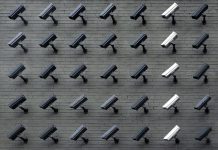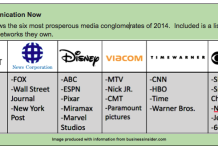You may have heard lately about a little thing called “net neutrality.” It isn’t particularly sexy. It doesn’t involve Trump or his extended family. It isn’t part of the conversation regarding the president’s submission of classified intelligence to the Russian government. It isn’t one of the myriad reasons Trump is unfit to hold the nation’s highest office. It isn’t even talked about on the major television news networks.
But you should care about it. A lot.
Why? Because you’re reading this compliments of a free and open internet, and if Federal Communications Commission (FCC) Director Ajit Pai gets his way, the “free and open” part will be a thing of the past.
We are accustomed to turning on our computers or picking up our devices, clicking a browser application, and literally having all the information we need at our fingertips. Unless we are in locations with poor service, or our places of employment block certain sites, most of us probably don’t have to question whether or not we can access what we want.
But what if internet services providers (ISP) charged different rates depending on the type of media we want, like cable companies already do with channel selections, basically creating “pay lanes?” If cable providers apply this same policy to the internet, the breadth and reliability of internet news would be significantly hamstrung. If you get your news from, say, Liberal America, but your cable company only allows access to it for an additional five dollars a month, are you still going to rely on it, or are you going to check out sites only available to you based on how much you are willing to pay? What if the basic package you pay for doesn’t offer the necessary broadband speed you need to access media such as video or live feeds?
Rules barring internet service providers from discriminating against legal content were adopted through a 3-2 vote in 2015.
Thursday, the FCC will vote again on Chairman Ajit Pai’s proposal to undo those net neutrality rules.
According to a piece on Techdirt.com, the ultimate goal of net neutrality opponents appears simply to be maximizing large broadband providers’ profits at the expense of consumers, competition, startup companies, and internet integrity.
Ajit Pai claims broadband industry-funded studies hamper broadband investment. In a speech last week delivered at an event hosted by FreedomWorks, Pai said:
“So what happened after the Commission adopted Title II? Sure enough, infrastructure investment declined. Among our nation’s 12 largest Internet service providers, domestic broadband capital expenditures decreased by 5.6% percent, or $3.6 billion, between 2014 and 2016, the first two years of the Title II era. This decline is extremely unusual. It is the first time that such investment has declined outside of a recession in the Internet era.”
But there is no objective evidence of this.
There is evidence of some telecom industry-funded think tanks cherry-picking data to create the illusion investment has suffered. Most ISPs report no investment reduction under Title II.
Ajit Pai is trying to spin this using the typical Republican talking point of a corporate-controlled internet “creating jobs.” He wants people to believe private industry unfettered from onerous regulations would provide telecom companies the “freedom” to serve the public more equitably.
However, placing total control of our broadband activity solely in the hands of, say, Comcast or Verizon reduces competition, something Republicans and Libertarians claim to want for everyone.
The good news is, net neutrality has broad bi-partisan support. With the unprecedented level of resistance to the Trump agenda sweeping the nation, Ajit Pai is certain to face overwhelming push back–that is if people are aware of net neutrality and how its absence will impinge upon their ability to access information, education, jobs, and public services like boards of elections, health, and departments of motor vehicles. Millions of people use the internet to research and obtain public assistance, and even health insurance through states’ healthcare exchanges.
Pai will also need to show courts the market has changed significantly enough since the FCC’s win over ISPs to justify a volte-face on the rules.
The future of journalism–like independent outlets such as Liberal America–lays in the balance. The press cannot presume to effectively remain the fourth estate guaranteed in the Constitution if government revokes the mechanism for its existence. It is imperative the internet continue to be safeguarded as a public utility.
Featured image from PC Mag.





